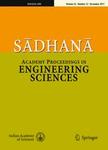版权所有:内蒙古大学图书馆 技术提供:维普资讯• 智图
内蒙古自治区呼和浩特市赛罕区大学西街235号 邮编: 010021

作者机构:KS Rangasamy Coll Technol Dept Elect & Elect Engn Tiruchengode 637215 India
出 版 物:《SADHANA-ACADEMY PROCEEDINGS IN ENGINEERING SCIENCES》 (Sadhana)
年 卷 期:2013年第38卷第4期
页 面:545-556页
核心收录:
学科分类:12[管理学] 1201[管理学-管理科学与工程(可授管理学、工学学位)] 08[工学]
主 题:Combined economic emission dispatch (CEED) optimization algorithms power demand Ant colony optimization modified Ant colony optimization (MACO)
摘 要:Economic load dispatch is one of the vital purposes in electrical power system operation, management and planning. Economic dispatch problem is one of the most important problems in electric power system operation. In large scale system, the problem is more complex and difficult to find out optimal solution because it is nonlinear function and it contains number of local optimal. Combined economic emission dispatch (CEED) problem is to schedule the committed generating units outputs to meet the required load demand at minimum operating cost with minimum emission simultaneously. The main aim of economic load dispatch is to reduce the total production cost of the generating system and at the same time the necessary equality and inequality constraints should also be fulfilled. This leads to the development of CEED techniques. There are various techniques proposed by several researchers to solve CEED problem based on optimization techniques. But still some problems such as slower convergence and higher computational complexity exist in using the optimization techniques such as GA for solving CEED problem. This paper proposes an efficient and reliable technique for combined fuel cost economic optimization and emission dispatch using the Modified Ant Colony Optimization algorithm (MACO) to produce better optimal solution. The simulation results reveal the significant performance of the proposed MACO approach.